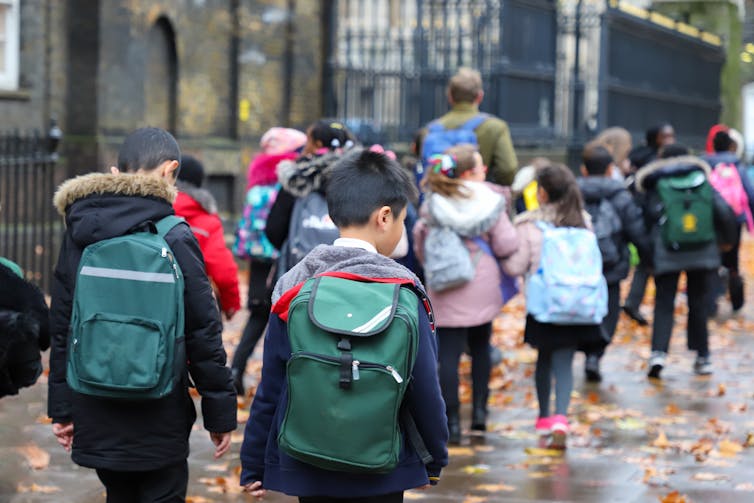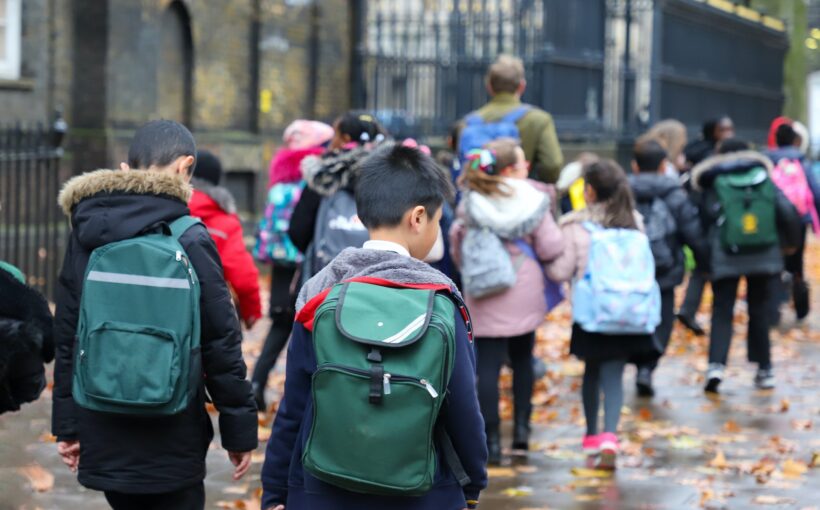Speakers at the 2023 Labour party conference have rightly addressed the economic insecurity affecting families across the UK. As winter approaches, many are at breaking point. One week earlier, however, the Conservatives were notably quiet on this point. And yet, the government’s own statistics show that four in ten adults are struggling with rent or mortgage payments and are buying less food when shopping.
The government has implemented a range of measures to support people facing rising costs. These include direct support to households through the energy price guarantee, and cost of living payments to households in receipt of eligible benefits. Other initiatives – the household support fund and council tax energy rebates – have been devolved to local authorities to roll out.
Our new research combines evidence collated since 2022, through projects in the University of York’s Cost of Living Research Group. In particular, we are conducting collaborative research with more than 100 families on low incomes based across the UK, along with analysis of national statistics and surveys of over 700 local councillors.
Our findings show that these governmental interventions have not helped the country’s most vulnerable people. They point to three crucial issues that need to be addressed: child poverty, fuel poverty, and local authority welfare funding.

Child poverty
The pandemic and cost of living crisis have exposed weaknesses in the UK’s social security system, opened up by over a decade of cuts. Children in the poorest households are bearing the brunt of this failing safety net.
The benefit cap and two-child limit, which restricted the support provided through tax credits and universal credit to two children per household, were key contributors to rising child poverty throughout the 2010s, predominantly affecting larger families. One in ten children (1.5 million) now live in households affected by the two-child limit. The benefit cap, meanwhile, has affected the lives of 280,000 children. Some 32,000 households – 110,000 children – have their income limited by both.
The people we spoke with explained how living in poverty has affected their whole families. One respondent, Lili, said:
Scrimping like this does have a negative effect on us all … I wake up in the night worrying about money and know how much it costs to use every single appliance. My standard of self-care and wellbeing has declined, but I am trying to ensure that our daughter’s does not. We are surviving but not really living, let alone thriving.
The government’s cost of living payments were paid at a flat rate and not adjusted to household size. This means they have not met the needs of families with children. Abolishing the two-child limit and benefit cap would make an immediate difference to low-income households, helping lift more than 1.5 million children out of poverty.
Fuel poverty
Since 2021, the proportion of people unable to meet their energy needs has risen dramatically. Our research shows that one in ten UK households are now affected.
That number rises to three in ten for one-parent households with two or more children. This means these families are at risk of living in damp, mouldy and cold homes, which can lead to heart and lung problems and undermine their mental health. For children, living in fuel poverty can have a significant lifelong impact.
The Westminster government’s energy support has done little to alleviate hardship. As another respondent, Dotty, put it: “I’m lucky if £20 credit on my electric pre-payment meter will even last me for three days.”
Despite the energy price guarantee, our analysis suggests that six in ten families on the lowest incomes were living in fuel poverty in April 2023. We estimate that one in three households in fuel poverty (around 1.75 million people) have been ineligible for government cost of living support.
A recent survey from the energy provider EDF found that 77% of the British public are in favour of a social energy tariff. Implementing such a tariff could help target government support to the most vulnerable households.
Local welfare systems
Councils are responsible for administering the national government’s household support fund. The first of this series of support packages, now totalling over £2.5bn, was announced by Westminster in October 2021.
The problem is that after a decade and a half of austerity policies, councils and local services have been stripped to the bone. They now lack the infrastructure and capacity to administer and roll out these short-term schemes, about which they are notified, by central government, at short notice.
One council worker told us how “bitty” the funding had been: “Every time we’ve had the scheme, the message from the Department for Work and Pensions has been, ‘This is the last year you’ll get the funding.’” As a result, the council worker said, they do not plan for the long-term.
Our analysis of the second wave of household support fund allocations showed that, while authorities such as Doncaster and Leeds allocated more than 70% of their funds to support for energy and water needs, neighbouring authorities North Yorkshire and Wakefield allocated 90% or more towards food.
This inconsistency is making life harder for people seeking help. As one respondent, Mollie put it:
I reached out to my local council regarding the household support fund, as my sister mentioned she had received some support in the form of food vouchers. It turns out her local council made the scheme easier to access.
The household support fund can be a lifeline for households struggling with rising costs. But getting aid to the people who need it takes stable, predictable funding and proper strategic planning.
In his conference speech, opposition leader Keir Starmer said the Labour party wants to move away from the current government’s short-term, “sticking plaster” approach to politics. The reality, however, is that neither party currently has a sufficiently ambitious plan to rebuild the UK’s social security system. People cannot wait until the next election to get the help they need. The government needs to act now.
![]()
Kit Colliver receives funding from the Economic and Social Research Council.
Amy Barnes receives funding from the National Institute for Health and Care Research (NIHR) and the UK Prevention Research Partnership (an initiative funded by UK Research and Innovation Councils, the Department of Health and Social Care (England), UK devolved administrations, and leading health research charities). Amy is a Trustee of Healthwatch North Yorkshire and Manor and Castle Development Trust, Sheffield.
Maddy Power receives funding from the Wellcome Trust. Maddy is a member of the Labour Party and a Trustee of the Independent Food Aid Network.



